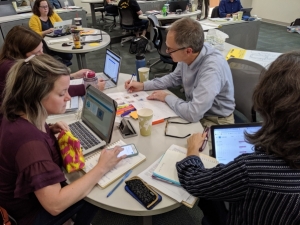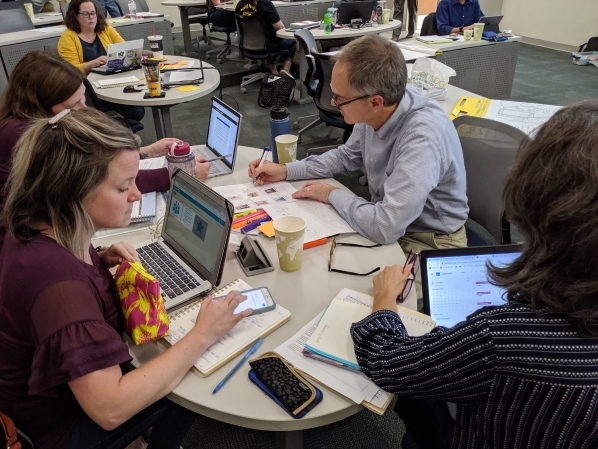Teacher-directed professional learning is an emerging topic within the educational community. Traditional professional development strategies have demonstrated low implementation rates (Joyce, Bruce; Showers, Beverly 1982) (Joyce and Showers, 1982) within the classroom due to a wide range of challenges. Schools have limited resources and time available for long term professional support of teachers. Professional development sessions are often required to be a one-size-fits-all approach due to these limitations resulting in a significant percentage of the participants feeling disconnected to the content or finding no relevance.
Herein lies the quandary that plagues districts, schools and the larger education community. How do we support educators who work with student populations as diverse as the population of teachers while still aligning to their individual standards and expectations. It is this quandary that has formulated the need for teacher-directed professional learning as well as the tools and resources to accomplish this task. That is the focus of this dialogue: Are we at a place with respect to technology, access and equity where we can entrust educators with their own professional learning? Will those experiences translate into higher implementation and satisfaction rates?
The Empowering Teacher Learning project seeks to determine the impact and opportunities created by such a model. Imagine giving teachers the power to determine the time, location, and content of their professional learning and supporting their learning goals and demonstration of competency with stipends. How will that change the landscape of school schedules when districts can reclaim professional development days? Teachers may have more time for planning and collaboration with their peers, so they can actually implement what they have learned. What about the culture of schools? Imagine that teachers have the autonomy to grow and become the professional or leader they want to be within a school system. Teachers can become local or regional specialists in specific approaches or instructional strategies and may serve as mentors to others regardless of their status or time within the school.
They say a “rolling stone gathers no moss,” perhaps it's time to give teachers the space and opportunity to travel freely within the licensure and renewal system; maybe we can shed some of the stagnation of our schools and actually empower teachers.

